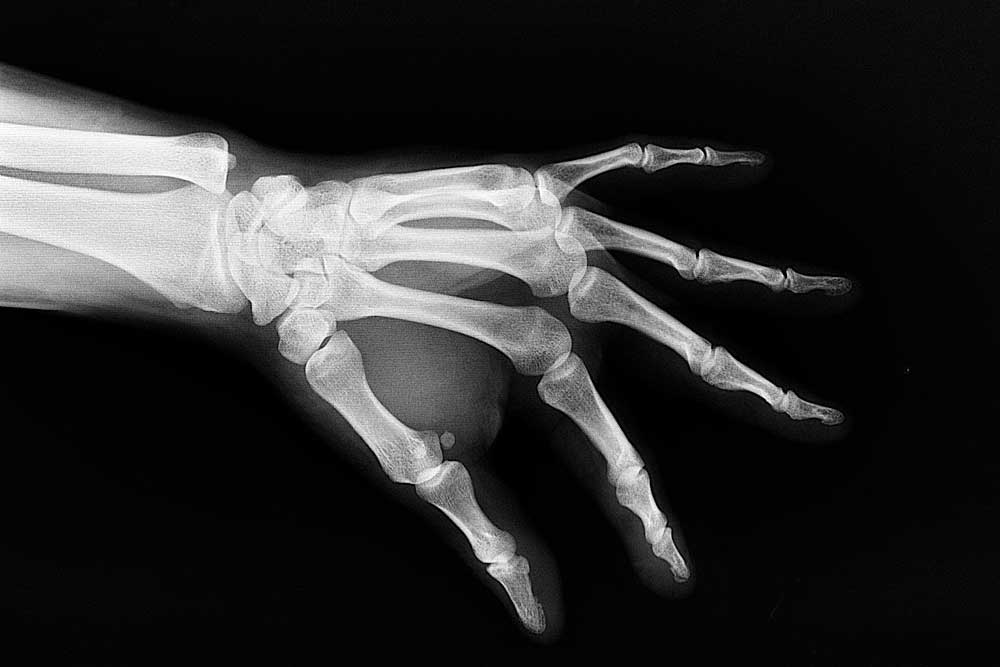Historical
‘Dem Bones Dem Bones Need Calcium…
…and that’s a natural law!’ Got milk? Nope. For decades, the dairy industry has stressed the importance of milk products for calcium. Sound teeth? Strong bones? Osteoporosis? Milk to the rescue! But is ‘nature’s first food’ also ‘nature’s perfect food’? For baby animals of the same species, yes! For animals beyond weaning age … and formatted differently? No. The milk of each species is composed to provide perfect nourishment for growing babies of that species alone. Which is why, perhaps, the thought of adults drinking human breast milk our perfect first food! – retains a yuck factor, Baby Gaga ice-creams notwithstanding.
But don’t we need dairy for strong bones? Without calcium, wouldn’t we crumble from within? ‘Dem bones’ do need calcium but not exclusively, in isolation, or to excess. The ‘package’ nutrients come in matters, too: is it rich in complementary vitamins and minerals, or does it contain potentially harmful elements?
Ca, Mg, P, B, Vit D, Vit K…
Nutrients work in concert in the body. In an orchestra, if one rogue instrument dominates the performance is ruined. Likewise, an excess (or deficiency) of one nutrient can disrupt the harmonious working of a group of nutrients, with potentially negative consequences. Magnesium, phosphorus, boron, vitamin D and vitamin K are needed to build and maintain strong bones. Via different pathways, optimum supplies of these minerals and vitamins draw calcium into the bones and teeth and fix it there. In their absence, however, calcium goes rogue and is deposited in soft tissues, organs and blood vessels instead. Calcium is a hardening and tensing mineral. A deficiency in bones and teeth leads to osteoporosis and dental problems, while excess calcium in soft tissues, organs and blood vessels can contribute to arthritis, dental calculus, PMS, organ calcification, cardiovascular disease, high blood pressure and premature ageing.
The Whole Package
Dairy products contain substantial amounts of calcium and phosphorus but very little, if any (depending on the nutrient), magnesium, boron, vitamin D or vitamin K. Phosphorus is abundant in meat and milk. While it is needed to absorb calcium, too much can cause calcium to be leached from the bones! And the more phosphorus you consume, the more calcium you need. So it is arguably better to get calcium from sources less rich in phosphorus. The dairy ‘package’ also includes saturated fat, cancer-causing hormones and animal proteins, and allergens like lactose. Milk products have been linked to respiratory illnesses, sinus problems, and multiple sclerosis, too. In fact, one study has shown there was no overall association between milk intake and incidence of hip fracture in women, which suggests that milk is not protective. Interestingly, though, other studies suggest countries with high dairy consumption (e.g. Sweden) have high osteoporosis rates, while African communities with low consumption (e.g. South African black women) have low rates.
Where Else Can We Get It?
So, can we get a better package deal elsewhere with no potential for harm? Calcium is abundant in many plant foods, especially kelp, sesame seeds, almonds, sprouted foods, chick peas and dark green leafy vegetables, such as kale, bok choi and broccoli (to name but a few). The calcium in dark leafy greens is absorbed roughly twice as effectively as dairy calcium, according to Michael Greger MD. Bonus nutrients in green veggies include magnesium, vitamin K, folate, iron, antioxidants and fibre. Phytates, which are found in beans, peas, grains, nuts and seeds, have been widely maligned as blocking mineral absorption and softening bones on the basis of a 1949 study on puppies. Recent human studies, however, have demonstrated that phytates actually strengthen bones, most likely by helping to prevent the breakdown of bone. (If you’re still worried about phytates, eating plenty of garlic and onions aids mineral absorption from other foods.) A diet based on whole plant foods – vegetables, fruits, pulses, grains, nuts and seeds and sea weed offers a wealth of minerals, vitamins and other nutrients, including abundant calcium, without the dangers of dairy.
The only bone nutrient hard to get from plant foods is vitamin D, vital for calcium-phosphorus metabolism. The best source is the sun. Failing that (and let’s face it…), the best food sources are fatty fish (including the skin) and naturally pastured poultry and egg yolks. Mushrooms contain some vitamin D, too, but supplementation might be required…
Some Vitamin D supplements we recommend:
- Viridian Vitamin D3 – suitable for vegans
- Viridikid Vitamin D3 – suitable for Kids
- Better You Vitamin D3 (3,000iu) – Convenient one spray dosage of 3,000iu
- Solgar Vitamin D3 (4,000iu) – Higher strength dosage of 4,000iu
A Word on Protein
A prevailing theory in nutritional science suggests the acid-forming properties of animal foods cause the body to leach alkaline minerals, such as calcium, from our bones to buffer the acidity and keep our blood pH in the perfect 7.35 to 7.45 range. A recent study has called this into question. A plant-based diet is still a good idea, but for different reasons.




